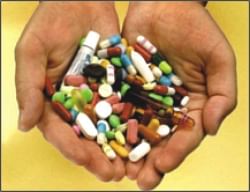New essential drug list after 25 years

The Ministry of Health has finally approved a new list of essential drugs after 25 years, aiming to make key medicines available and affordable throughout the country.
However the move has been slammed by the country's pharmaceutical industry that claims the list with its 'unrealistic' price controls could create shortages and limit investment in the fast growing sector.
At present the list of essential drugs contains around 150 items of which 117 are price controlled. Under the new list the number has been expanded to 209, reflecting advances in medical treatment during the last two decades.
An essential drug is a medicine considered as indispensable for treatment of a disease. All life-saving drugs are essential, but the incorporation of a certain drug in the essential drugs list of a country is determined by the existence of some specific diseases, or by the fact that those diseases pose a threat to the public health.
Most developing countries maintain a list of essential drugs.
A list of essential drugs is supposed to be updated regularly, but in Bangladesh no major review has been made since 1982.
Industry leaders fear the new list will hit the profitability of the industry as the way the government sets price controls is “unrealistic”.
“Traditionally the government sets a price of two and a half times raw materials,” said one manufacturer. “That sounds good if you are selling sandwiches, but there are huge costs involved in producing quality drugs that are not connected to the cost of raw materials,” he added.
“If drug manufacturers do not make a profit then why should they manufacture? If the incentives are not there, then at worst it could lead to shortages of essential drugs,” he said.
Nazmul Hassan, chief executive officer, Beximco Pharmaceuticals Ltd, pointed to another problem, as it appeared that some of the drugs on the list were rather costly.
“If costly items are included in the list how will the government ensure availability of these items within its limited budget for drug procurement?” Hassan said.
Echoing his view, Chairman of Chemico Laboratories Ltd MA Kalam suggested the government list should concentrate on cheaper products.
Director General of Health Department Prof Md Abul Fayez rejected the criticisms. He said the list was prepared after a long period of consultations involving all stakeholders.
“Many new drugs hit the market within the last 25 years, of which a good numbers of drugs were incorporated in the list by a high-powered committee,” Fayez said.
The list has been sent to the Chief Adviser's Office for its approval, he said.
Some people working in the healthcare sector believe the list should be even more extensive. For example, Dr Zafrullah Chowdhury, the project coordinator of Gonoshwasthya Kendra, an NGO providing medical services, said the list should include between 300 to 400 essential drugs.
[email protected]

 For all latest news, follow The Daily Star's Google News channel.
For all latest news, follow The Daily Star's Google News channel. 



Comments